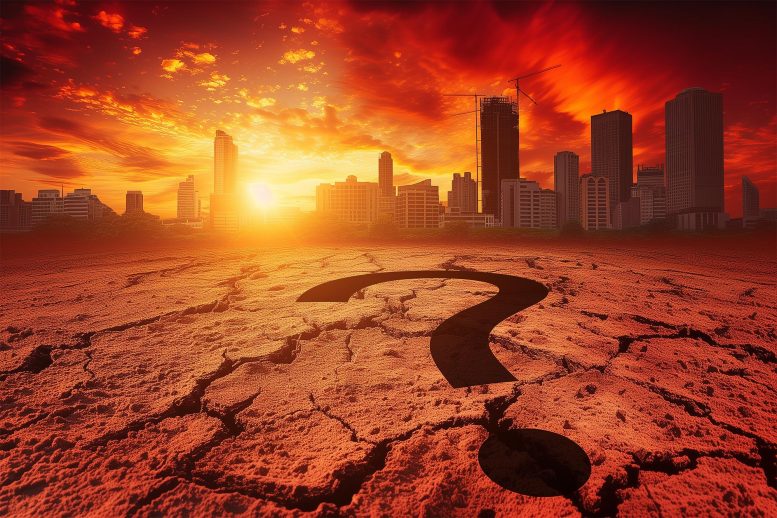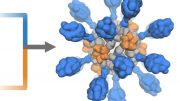
Utilizing AI and social media data, a University of Michigan study has found that nearly 15% of Americans are skeptical of climate change claims, despite scientific evidence of its impacts. The research, analyzing Twitter data from 2017 to 2019, reveals the influence of figures like Donald Trump in spreading skepticism and identifies geographical and demographic patterns in beliefs. Credit: SciTechDaily.com
Nearly 15% of Americans deny climate change is real, according to an AI study. Public figures such as former President Donald Trump play an outsized role in influencing beliefs.
Using social media data and artificial intelligence in a comprehensive national assessment, a new University of Michigan study reveals that nearly 15% of Americans deny that climate change is real.
Scientists have long warned that a warming climate will cause communities around the globe to face increasing risks due to unprecedented levels of flooding, wildfires, heat stress, sea-level rise, and more. Though the science is sound—even showing that human-induced, climate-related natural disasters are growing in frequency and intensity sooner than originally anticipated—climate change is still not wholly accepted as true in the United States.
The researchers used Twitter (now X) data from 2017 to 2019 and AI techniques to understand how social media has spread climate change denialism, analyzing the data to estimate climate change belief and denial rates.
The study, scheduled for online publication today (February 14) in the journal Scientific Reports, also identified key influencers, such as former President Donald Trump, and how they spread and cement misinformation about climate change by leveraging world and weather events.
“Prior to the advancement of AI and social media data, this work relied on expensive and time-consuming surveys,” said study senior author Joshua Newell, professor and co-director of the Center for Sustainable Systems at U-M’s School for Environment and Sustainability.
Using ChatGPT’s Large Language Model, the researchers classified more than 7.4 million geocoded tweets as ‘for’ or ‘against’ climate change and mapped the results at state and county levels. They then used statistical models to determine the typical profile of someone who does not believe in climate change and performed network analysis to identify the structure of the social media network for both climate change belief and denial.
The study found that 14.8% of Americans deny that climate change is real, which is consistent with previous national studies, and also identified the demographic and geographic groups where denialism persists.
Analysis of the geocoded tweets revealed that belief in climate change is highest along the West Coast and East Coast, and that denialism is highest in the central and southern parts of the country, with more than 20% of the populations of Oklahoma, Mississippi, Alabama, and North Dakota consisting of people who do not believe in climate change.
The researchers also revealed that belief in climate change can vary substantially within states. For example, in California, where less than 12% of the population does not believe in climate change, northern California’s Shasta County had climate change denial rates as high as 52%.
Similarly, the average percentage of deniers in Texas is 21%, but at the county level, this ranges from 13% in Travis County to 67% in Hockley County.
The findings show that political affiliation plays the most influential role in determining whether a person believes in climate change or not, with a high percentage of Republican voters having the strongest correlation with climate change deniers.
In addition, the researchers saw a strong connection between climate denialism and low COVID-19 vaccination rates, suggesting a broad skepticism of science. Other variables that they found to influence climate change opinion include level of education, income, and the degree to which the regional economy is reliant on fossil fuels to produce energy.
“What this indicates is that communities with a high prevalence of climate change deniers are at risk of discounting other science-based health or safety recommendations,” said study lead author Dimitrios Gounaridis, a research fellow at U-M’s Center for Sustainable Systems.
The study is also the first to identify which individuals on X are influential in shaping belief or denial of climate change and to what extent. In addition, it maps out how denialists and climate change believers have formed mostly separate X communities, creating echo chambers that do not interact with each other.
The findings show Trump as having the biggest influence, as well as three influential groups that heavily retweeted him—The Daily Wire, Breitbart, and Climate Depot—in addition to conservative political commentators such as Ben Shapiro.
“During the 2017-2019 study period, the most heavily retweeted post includes one by Trump that questions climate change due to unusually cold weather in the U.S., and another where he casts doubt on a U.N. climate report,” Newell said. “In almost half of the tweets analyzed, the most common refrain was that ‘climate change was not real.'”
Other frequent explanations were that humans are not the primary cause and that climate change experts are unreliable.
Newell said that, although there’s a broad awareness of the fact that social media users like Trump can be influential, it was striking just how influential a role some individuals play in shaping and cementing public opinion on crucial issues such as climate change.
“What is scary, and somewhat disheartening, is how divided the worlds are between climate change belief and denial,” he said. “The respective X echo chambers have little communication and interaction between them.”
Newell notes that the study did not analyze newer social media outlets, such as Truth Social, a primary channel for Trump’s recent social media posts.
“Influencers like Trump are creating their own echo chambers outside of X, which in many ways is even more concerning,” he said. “People tend to selectively credit or discredit evidence based on their beliefs, which is how fake experts come to serve as credible messengers.
“This is the basis of the theory of identity-protective cognition, which helps explain, for example, why Republican voters are more likely to believe tweets from Trump on climate change rather than other, more reliable sources—it is identity-affirming.”
With election season in full swing, the study’s authors suggest that social media companies should flag misinformation when it appears on their platforms and consider banning users who persistently spread falsehoods.
“The information revealed in this study provides a basis for developing strategies to counter this knowledge vulnerability and reduce the spread of mis- or disinformation by identifying the communities most at risk of not adopting measures to increase resilience to the effects of climate change,” Newell said. “We learned that a relatively small number of individuals are highly influential in spreading misinformation about climate change.
“Social media companies have banned users for this type of behavior in the past, and for other topics, such as when then-Twitter banned Trump because of tweets maintaining election fraud and supporting the U.S. Capitol attack on January 6 (his account has since been restored). For the safety of others, these companies should consider developing similar policies to limit the spread of climate change misinformation.”
Reference: “The social anatomy of climate change denial in the United States” by Dimitrios Gounaridis, and Joshua P. Newell, 8 March 2024, Scientific Reports.
DOI: 10.1038/s41598-023-50591-6









“For the safety of others, these companies should consider developing similar policies to limit the spread of climate change misinformation.”
In other words, silence anyone that doesn’t agree with you. Sounds eerily similar to “The Ministry of Truth.
This site posting propaganda is pathetic.
The arrogance of the entire authors viewpoint that anyone who does not agree with the narrative needs to be fixed, silenced, or controlled.
When our institutions break trust it IS THEIR FAULT AND RESPONSIBILITY to get it back, NOT OURS.
The sheer fact you morons still use COVID vaccinations as some type of argument for people spreading misinformation shows either how stupid or corrupt you are.
These aren’t the opinion of the site, they are just reporting what Joshua Newell, professor and co-director of the Center for Sustainable Systems at U-M’s School for Environment and Sustainability, said.
I think many of us appreciate seeing how deluded and anti-science, supposed “scientists” like this are. It is funny how he can talk about echo chambers, without realizing he is suffering from the same, totally locked into the church of climate change, without any critical thinking.
Climate change is not an opinion, it is fact. It is here right now. We have known for 40-50 years. See the documentaries from Shell and Exxon in the 90s, before the fossil fuel industry changed strategy and started their disinformation campaigns.
Only the intense weather events have started sooner than expected. More intense cyclones, droughts, floods, blizzards, melting of ice caps, heat waves are all happening right now.
Pretending it doesn’t exist is not going to make it go away.
If climate change was a speeding car, and you denied it was hurtling towards you, you wouldn’t bother getting out of the way.
Trouble is climate deniers increase the danger for all of us by holding back action. Climate Action shouldn’t be about politics, or belief systems. We are all in the same boat. Climate chaos will effect Republicans the Democrats alike.
“See the documentaries from Shell and Exxon in the 90s, …”
If you actually look at them, what you will discover is that the only thing that the predictions have in common with each other, or modern forecasts, is a positive upward trend. However, some are so large as to be absurd. None of the others, going back to the ’70s, have been borne out by history. Even today, the models are acknowledged to run warm.
While one does read about extreme weather events attributed to anthropogenic global warming, there are many studies that debunk the claims.
Pretending that it exists, isn’t going to make it so.